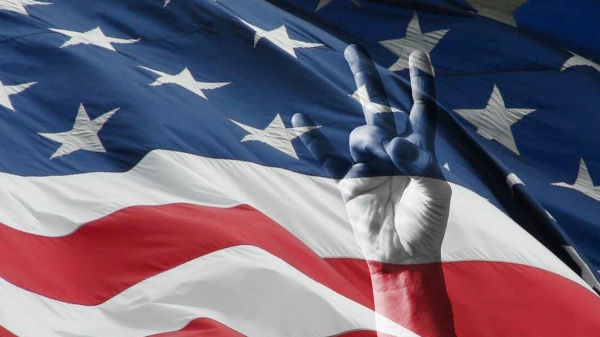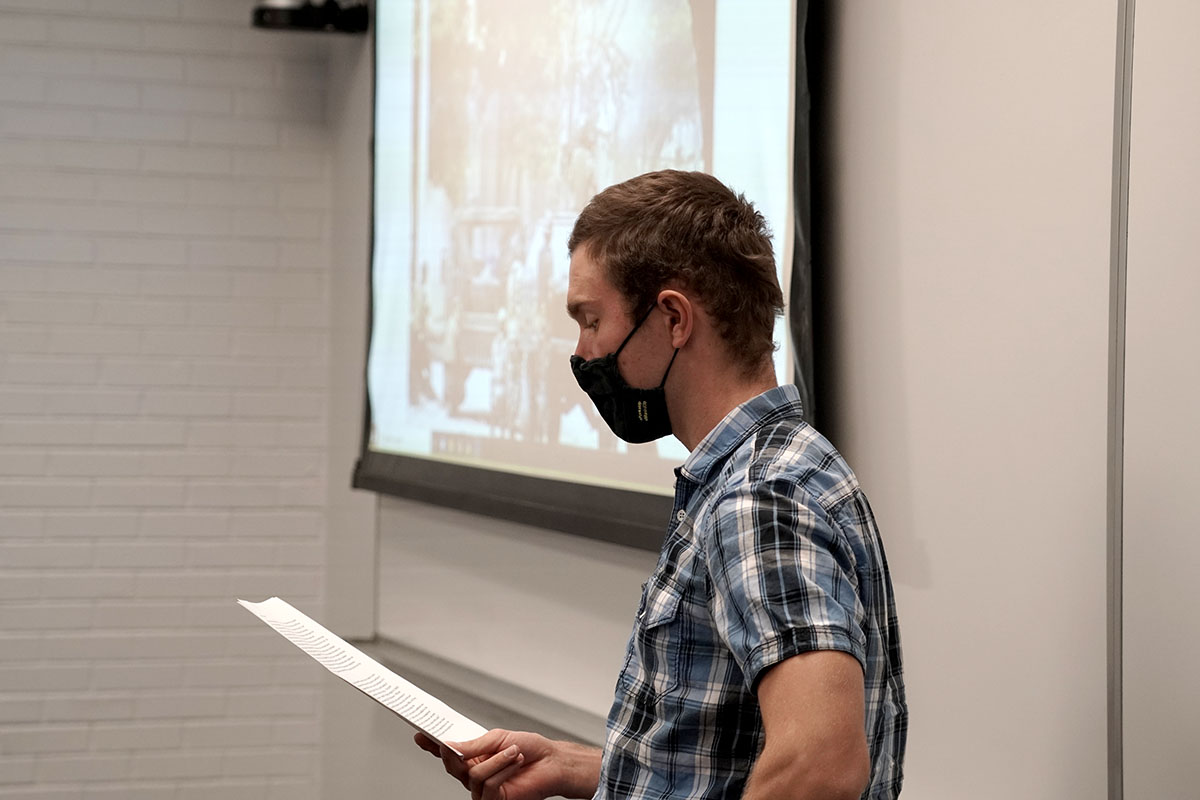ASU students explore US-Mexico border issues at Discovery Seminar event

Political science major Brigid Fitzgerald presents during the Discovery Seminar event held on Nov. 24, 2020.
From outdoor music classes to virtual hackathons, Sun Devils across Arizona State University have found creative ways to learn and interact amid the COVID-19 pandemic.
This innovation extended to School of Transborder Studies’ Director and Professor Irasema Coronado’s Discovery Seminar course, where students safely came together in person on Nov. 24 to present their final projects on a variety of topics relating to the U.S.-Mexico border.
These small, engaging, one-credit classes began five years ago with the goal of connecting first-year students in The College of Liberal Arts and Sciences with faculty, while enabling faculty to teach about special topics they’re passionate about. This course focused on current events on the U.S.-Mexico border, a topic that has been central to much of Coronado’s research. She co-authored “Fronteras No Más: Toward Social Justice at the U.S.-Mexico Border” and “Dígame! Policy and Politics on the Texas Border,” and has contributed to a variety of other work on the topic.
Coronado said that although learning to navigate the new digital learning environment has been challenging at times for both herself and her students, she was impressed with what the students accomplished and how they applied what they learned over the course of the semester.
“One of the things that astounded me about the class is that it’s only one credit hour but I can honestly say the students worked as if it were a three-credit-hour class,” she said. “I think they learned a lot and I had a lot of fun in the process. We’re very excited to have classes in person like this and we’re going to continue to have more events like this through ASU Sync and in person.”
Global studies major Mark Habelt attended the event and presented his final project, a review of the book “The Three U.S.-Mexico Border Wars.” After spending most of the semester taking courses remotely via ASU Sync, Habelt said it was a nice change of pace to be able to present his project in person while engaging with other students and his professor.
Global studies major Mark Habelt presents during the Discovery Seminar event on Nov. 24, 2020.
“Having this event in person makes it feel like we’re back to normal, even though we’re wearing masks,” Habelt said. “It’s really nice to be able to socialize in person and connect with our teacher. It’s a big reason why ASU stands out among other universities across the country — they’re willing to have a safe and healthy opening of their school to create a healthier and more successful learning environment.”
Other students presented on border wall construction and the impacts on the environment and surrounding communities as well as the history of the U.S. Border Patrol.
Paul LePore, associate dean for student and academic programs in The College, attended the event and said it was just one of many examples of the resilience and innovation that has taken place throughout the ASU community during this challenging time.
“When the entire country had to figure out how colleges would move forward during a pandemic, a once in a century event, ASU took that as a challenge,” LePore said. “We’ve really been innovators in trying to find different ways and modalities to bring education to people. We had to do it pretty quickly, but now we’re actually learning a lot from the past six months and finding ways to use the in-person experience along with what we can do in the digital environment. This event is a great example of that.”
More Law, journalism and politics

ASU experts share insights on gender equality across the globe
International Women’s Day has its roots in the American labor movement. In 1908, 15,000 women in New York City marched to protest…

ASU Law to offer its JD part time and online, addressing critical legal shortages and public service
The Sandra Day O’Connor College of Law at Arizona State University, ranked 15th among the nation’s top public law schools,…

ASU launches nonpartisan Institute of Politics to inspire future public service leaders
Former Republican presidential nominee and Arizona native Barry Goldwater once wrote, "We have forgotten that a society…


